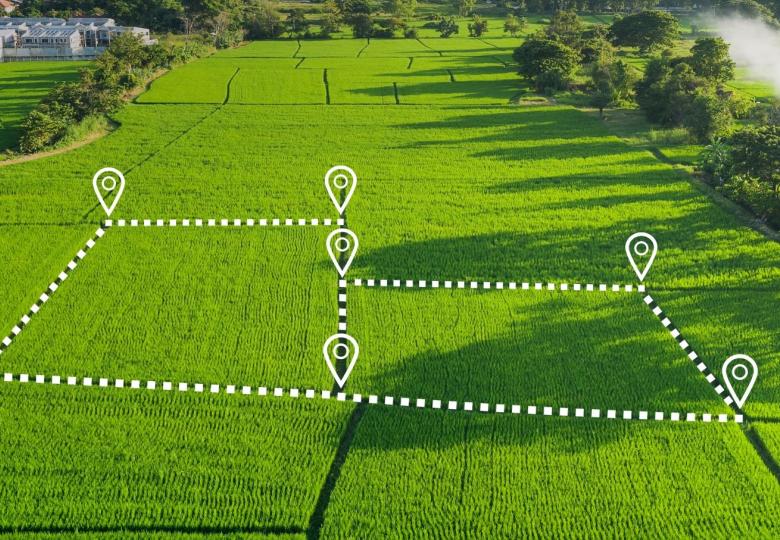Filling the FLEGT information gap
This project aimed to take the amounts of forest legality-related information that have been generated by Voluntary Partnership Agreement (VPA) processes as well as other sources, and present it in a format that was easily understood by, and freely available to, those who need it to evaluate risk in timber product supply chains.
The specific objective of this project was: to support the FLEGT process by enabling more effective implementation of the EUTR through making critical information easily available for those who need it.
The Project
Thanks to Voluntary Partnership Agreement (VPA) and other types of forest governance processes in many countries, there is already lots of information currently available about forest legality issues, such as places where illegal logging and/or health & safety violations are known to occur. However this information is often not complete, too technical to easily interpret, not available in common languages, as well as not gathered in one primary place. The basic idea of the initiative "Filling The FLEGT Information Gap" under the joint project Supporting Legal Timber Trade was to mend this gap.
This project worked to transform and mould the existing data to make it useful to those of the forest and timber industry supply chain who need it to implement laws related to illegal logging, such as the EU Timber Regulation. At the same time, the project sought to fill in the critical knowledge gaps where information about specific areas was missing.
The specific objective of this project was: to support the FLEGT process by enabling more effective implementation of the EUTR through making critical information easily available for those who need it.
Competent Authorities, importers/exporters, financial institutions and all others working to either abide by the requirements of VPAs and EUTR, or ensure its effective implementation, are whom this project sought to benefit.

Creating tools for the industry
In addition to making existing information more accessible, useful and manageable, the project facilitated change by filling in knowledge gaps, which helped enable the timber industry to conduct the proper due diligence that is required under the EUTR, enable Monitoring Organisations to effectively evaluate due diligence procedures, as well as to enable Competent Authorities to conduct more efficient enforcement of the Regulation.
It also supported the implementation of purchasing policies by many types of organisations and in various sectors (private and public) that are aiming to eliminate trade in illegal sources, such as financial institutions and other companies with mass consumer-facing brands – which are often stakeholders that are among the strongest drivers for change.
The project developed a “toolkit” of supporting documents, that when applied together with the data that was developed into risk assessment frameworks, allows stakeholders to make the necessary evaluation of risk in their supply chains. The toolkit would, for example, include country profiles and an extensive list of different guidance documents, such as a legality document checklist and guidelines for importing under a VPA.

Project activities and results
Three main areas formed the basis of this project, namely filling the information gaps, develop a risk assessment toolkit and finally a strong focus on dissemination and capacity-building.
The overall expected outcome of the project was to increase compliance with EUTR regulations. To accomplish this, the following specific expected results were formulated:
Information gaps will be filled through mapping available forest legality information for countries that are important to EU trade, and fill in critical gaps in available information with new studies. The result will be a set of country-based forest legality risk assessments.
- A set of practical tools will be developed that will allow stakeholders to take the data from the risk assessments and apply the necessary due diligence process required under the EUTR.
- A dissemination campaign that will inform key stakeholders about the new tools available to them, as well as provision of capacity-building (training workshops) in how to use the information and tools.

The FLEGT status and a way forward
Two years after the initial implementation of the EUTR, it was clear that the EU industry was still struggling to deal with and effectively implement its requirements. One major obstacle to the EU industry was a general lack of knowledge regarding where to obtain (and how to interpret) information and documentation that could support their due diligence processes and provide indicators of risk. Even though the VPA processes have generated vast amounts of information and clarified legal requirements in many countries, this information was still of a character that stakeholders in the EU were often not able to use in a way that allowed them to make meaningful conclusions about timber legality risks.
More effective implementation of the EUTR would have the added knock-on effect of pushing demand for increased legal compliance and timber tracking in producer countries. A main issue at that time was that most VPA countries felt they could still export without restrictions to the EU. If the relevant actors started to become more demanding in terms of information and documentation requirements, then it would increase the interest for VPAs in additional countries. Through the proposed risk assessments and tools, it would be made clear that countries who were further advanced in the implementation of clear Legality Definitions and Timber Legality Assurance Systems would make better trade partners because it would be easier to confirm timber origin, legality and track timber products from forest to export.


Sustainable Management of Small Forest Properties for Resilient Forests in Europe (SMURF)
Europe's forests, crucial for their ecological and economic value, face mounting threats. Climate change fuels extreme weather eve...

Innovation Alliance for Training Programmes for Deforestation-Free Supply Chains in Europe (EMM...
Deforestation is the primarily result of the expansion of agricultural land for forest risk commodities (FRCs) such as cattle, woo...

FAO Geolocation collection and communication protocol
In an effort to combat deforestation and promote tools which enhance global monitoring and supply chain traceability, Preferred by...

Preferred by Nature conducts mid-term evaluation for Sabah Landscapes Programme, Malaysia
Forests are intrinsic to the balance of life in Sabah, Malaysia. However, decades of irresponsible logging and clearance for oil p...